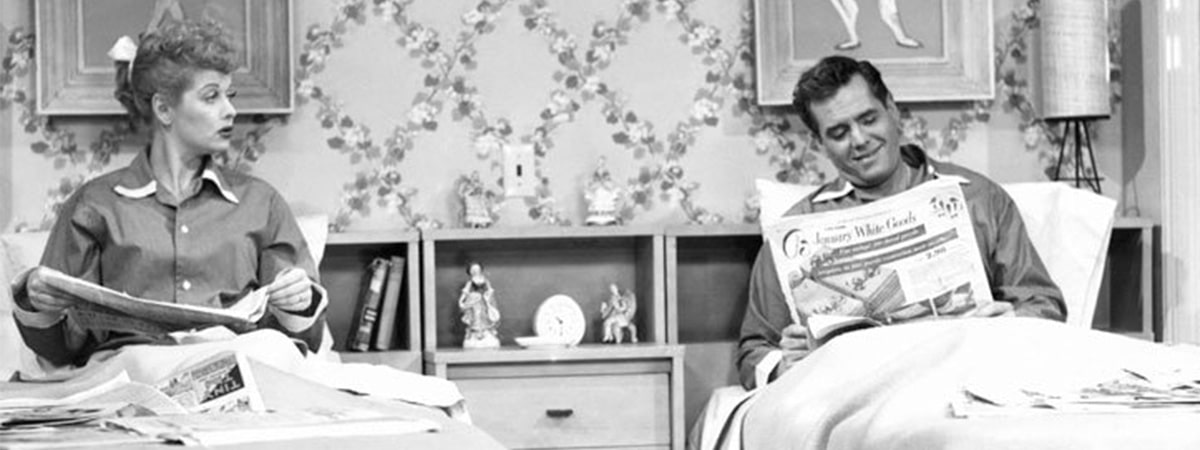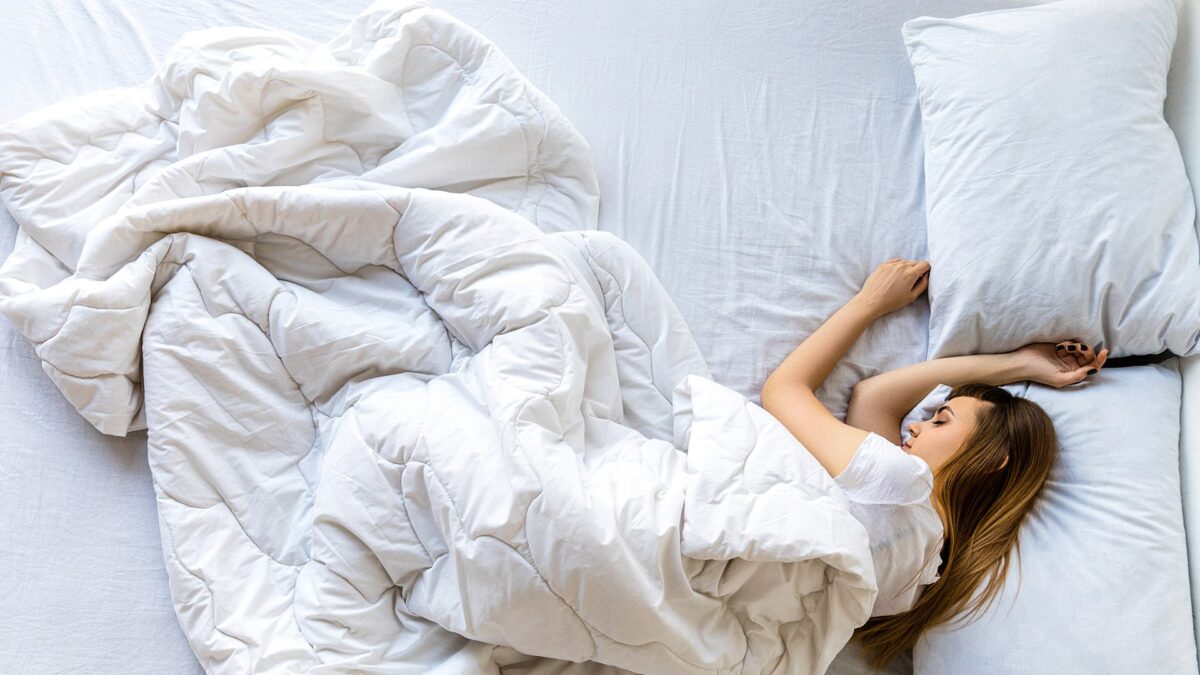Sleep, which we know is critical for optimal heart health and overall well-being, is also important for maintaining cohesion in the bedroom. If one partner in a co-sleeping couple is consistently tossing and turning, snoring, or generally waking up throughout the night, (all of which are common with sleep apnea) it’s likely that the other partner’s sleep will also be disrupted.
Eventually, this can result in what’s been dubbed in recent years as “sleep divorce,” which has the potential to cause resentment and strain in your relationship.

Sleep divorce describes the practice of sleeping separately from your partner in order to improve sleep quality. And it’s been shown that in recent years, the number of cohabitating couples choosing to sleep in separate beds has risen. One large reason for this? The increasing number of folks who are suffering from sleep apnea.
Sleep apnea is a sleep disorder that causes a cessation of breathing during sleep temporarily, but repeatedly. While this can be a jolting experience, it’s also very common for this condition to go unnoticed by the sufferer themselves.
However, sleep apnea is often accompanied by loud gasping, snoring, or even choking. Whether or not the person with sleep apnea is aware that their sleep is being disrupted, their partner is sure to be impacted by it. In fact, many partners of sleep apnea sufferers are woken up multiple times throughout the night. Of course, this disjointed sleep then consequently negatively impacts the partner’s day as well, leading to fatigue, irritability, and other negative side effects of sleep deprivation.
This can eventually create feelings of frustration and resentment within the relationship, leading to conflicts during the day. On the other end, the person with sleep apnea can wind up feeling embarrassed or ashamed about their condition, resulting in even more emotional strain on the relationship.
With this being the case, many partners of sleep apnea sufferers will eventually choose to sleep in separate bedrooms. Which isn’t all bad. In fact, some couples wind up discovering that sleeping separately is ideal for them for multiple reasons. However, for others, it can have some negative impacts, such as loss of physical intimacy and closeness, or embarrassment due to social stigmas.
If the idea of sleep divorce doesn’t feel right for your relationship, but you’ve found yourself running out of options, don’t give up hope! There are several ways you can use Cardiogram to improve your situation.
check your report card
Your Cardiogram app tells you your risk of sleep apnea. If you’re not sure whether or not you have this sleep disorder, but find that you and your partner’s sleep is disrupted when together, see where your risk level lies.
schedule a consultation with ognomy
Tag your sleep
Journaling
Enroll in SLEEP HYGIENE habits
Taking notes of activities you engage in, people you see, and foods you eat throughout the day can also be helpful in pinpointing things that trigger worse sleep.



